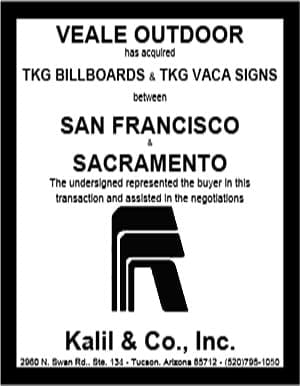
By Richard Rothfelder
In the August 29th edition of Insider, I discussed the Texas administrative rules making process, including how the Texas Transportation Commission is incorporating recently passed legislation on new and grandfathered sign heights into its rules. The Texas Administrative Procedures Act (“APA”) encourages public participation and transparency throughout this process, by mandating where and when to publish proposed rules, and opportunity for public comment on them in hearings and writings.
Sometimes, however, government agencies, like the Commission, attempt to implement the types of rules covered by these procedural safeguards, by calling them mere “guidance” or “policy memos.” In doing so, the agency argues, it need not involve the public as required under the APA, thereby taking a short cut to the implementation of the regulation.
Texas billboard operators are painfully aware of such an example in the March 2016 “Guidance” on the relocation and compensation due for billboards displaced by TxDOT highway projects. This two page memo was authored by the former Director of the Right of Way Division of TxDOT, and most importantly, it did not follow the notice, hearing, publication, and other due process protections mandated by the APA. It did, however, drastically change the procedure in the condemnation of billboards, including by eliminating sign relocation rights if the owner failed to agree with TxDOT’s offer for the cost of his sign before the condemnation special commissioners’ hearing. The practical result, therefore, is the grossly unfair bargaining power afforded TxDOT in dealing with owners who are losing their billboards to accommodate TxDOT’s highway projects.
Fortunately, the APA (in Section 2001.038) itself explains when some sort of agency enactment will still be subject to its procedural safeguards, even where the agency attempts to disguise an administrative rule as a mere guidance: “The validity or applicability of a rule…may be determined in an action for declaratory judgment if it is alleged that the rule or its threatened application interferes with or impairs, or threatens to interfere with or impair, a legal right of privilege of the plaintiff.” The Texas Courts have also attempted to preserve public participation and transparency in reviewing these agency efforts under the APA: “The Legislature, through the APA, has enabled affected citizens to invoke judicial jurisdiction… to test the ‘validity’ or ‘applicability’ of agency pronouncements that rise to the level of ‘rules’-including those that ‘interpret’ law or policy-and required that the further checks of transparency, public participation, and reasoned justification must precede such assertions of agency authority.” Teladoc, Inc vs Texas Medical Board.
There is certainly room for disagreement on the types of political and policy issues that have been challenged in courts across the county for failure to adhere to required administrative procedural safeguards, like those on The Wall, travel bans, immigration, and tariffs. However, most agree that the implementation of sound administrative rules governing our lives and livelihoods ought to follow the checks and balances mandated by constitutional due process and the APA.
You can download a presentation on APA challenges which I am making at the October 2019 Eminent Domain Conference here.
[wpforms id=”9787″]
Paid Advertisement

















